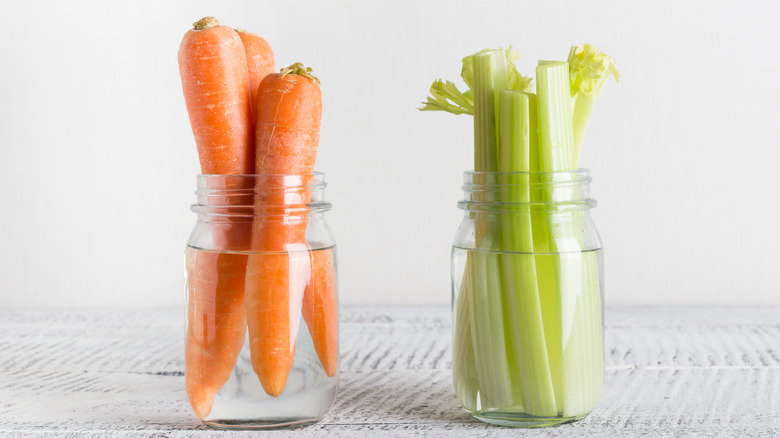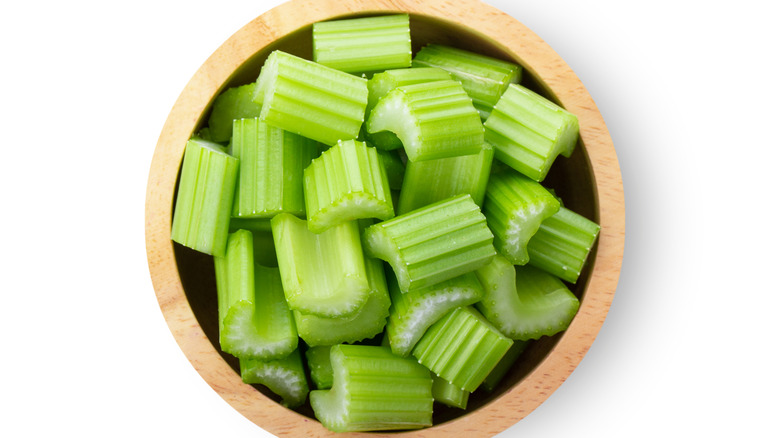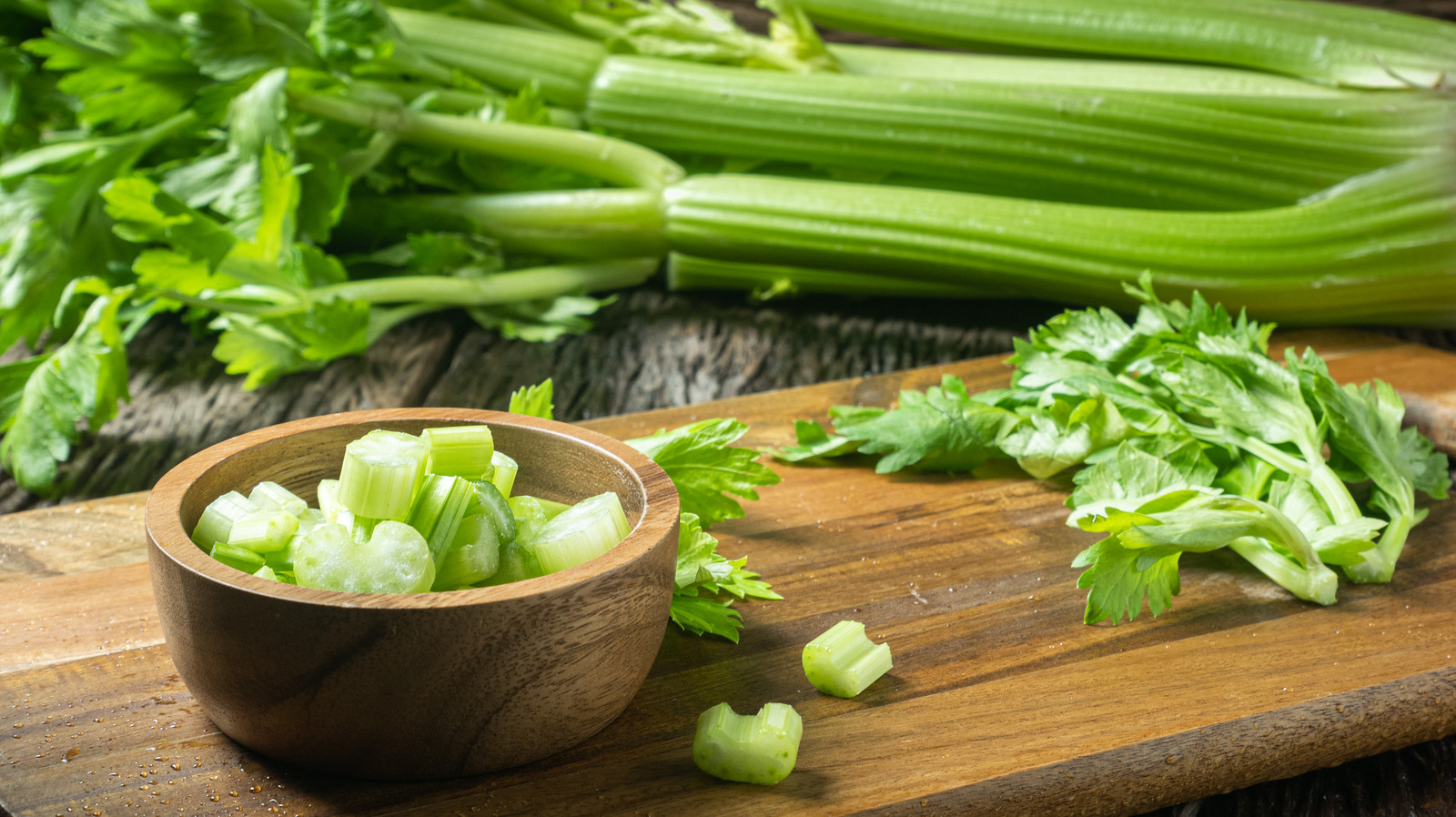If you are among those who do not keep celery on hand in the fridge because you do not think you can use it all before it goes bad, then it’s time to rethink how you store the hard-working vegetable. Celery is absolutely a staple ingredient because it can be used for tons of different dishes. From using it to scoop up hummus or peanut butter and as the base for soups and stews to adding celery to dishes like chicken salad or to add crunch to a regular salad, celery is an incredibly versatile vegetable to keep around.
While the long, crisp stalks can turn limp or even mushy when they are not prepared before being put away, celery can actually have a long shelf life. With the right repackaging and storing methods, celery can be kept for weeks at a time — and even for up to a year when frozen properly. Depending on how you hope to use your celery and how long you need to keep it fresh, there are plenty of techniques and tricks to help your head of celery outlast your expectations.
Use aluminum foil

Celery can easily be kept for up to a month in the fridge when it is stored using aluminum foil. The plastic bag celery comes in should be discarded because it actually traps the ethylene gas that the produce releases and causes it to spoil faster, according to Food52. That’s why you should replace it with aluminum foil and even a paper towel wrap if you prefer.
To store celery in the fridge for two weeks to a month, it is important that you start with a whole head of celery rather than individual stalks. Removing any leaves will also help extend the shelf life because they will spoil faster and cause the stalks to also go bad more quickly. You can wrap a dry or wet paper towel around the whole head if you like or you can simply jump to the aluminum foil stage. The important thing is that you securely and snuggly cover the whole head of celery with aluminum foil. This should keep celery crisp and as fresh as you could want.
Use an airtight container with fresh water

If you have celery sticks you need to store instead of an entire head of celery, you might be able to use the original packaging. It’s a great way to keep leftover celery that was bought or prepped to eat with hummus or chicken wings good so you can use them for another snack or meal. According to Allrecipes, storing stalks of celery in an airtight container with water will help keep the sticks crisp for up to two weeks. But the amount of water you’ll need to keep the celery as moist as it requires to be crisp might surprise you.
To successfully store celery stalks or sticks, start by placing them inside an airtight container that is large enough to submerge them in completely. Once the celery is in the container, add enough water to cover them. You’ll need to change the water out regularly to ensure the celery stays as fresh as possible.
Place it in the freezer

Those who only use celery to flavor all kinds of cooked dishes such as soups, stews, braises, roasts, and more can take advantage of their freezer to majorly extend the shelf life of celery. Though it won’t be good to use it fresh after it’s been thawed from frozen, the softer texture isn’t a problem for cooking, according to Pure Vege. Using this technique, you can save your celery for up to a year, which is pretty impressive.
To freeze fresh celery, you’ll need to chop it to the size you prefer to use and cook it first. The best method is blanching or flash-cooking the celery. After the celery has been cooked, strain it from the water and allow it to dry off a bit before placing in the freezer. If you want to avoid the celery clumping together, flash freeze the pieces on a baking sheet before placing them inside an airtight container to store in the freezer for the long term.







